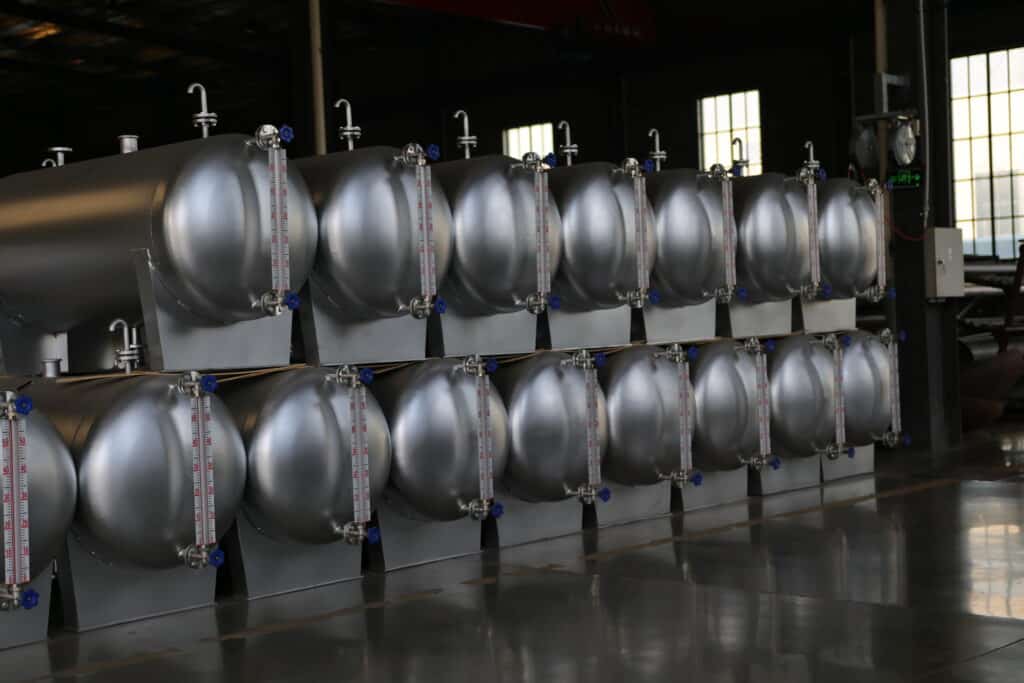Boiler plants are one of the most indispensable pieces of equipment in the industrial sector, especially in production processes that require high-temperature steam or hot water. With increasing energy consumption and progressively stricter environmental standards, the selection of boiler equipment no longer relies solely on its heating capacity, but also needs to take into account its energy efficiency, environmental impact and operating costs. Therefore, choosing an energy-efficient boiler equipment can not only improve production efficiency, but also effectively reduce energy waste and operating costs. This article analyses how to select the right boiler equipment from multiple perspectives to ensure that it provides optimal thermal support for industrial production.
1. The importance of choosing an energy efficient boiler
In today's increasingly tense energy, the energy-saving characteristics of boiler equipment has become one of the most important factors for enterprises to consider when purchasing equipment. Energy efficient boilers can not only significantly reduce energy consumption, help enterprises to reduce production costs, but also reduce carbon dioxide and other greenhouse gas emissions, in line with modern environmental requirements.
Improve energy efficiencyIt is the primary goal of choosing an energy-efficient boiler. Through highly efficient heat exchange systems, intelligent control technology and optimised combustion processes, energy-efficient boilers are able to maximise the calorific value of the fuel and reduce heat loss. Compared with traditional boilers, energy-efficient boilers have lower fuel consumption and correspondingly lower operating costs.
2. Innovation and development of modern boiler technology
With the continuous progress of technology, modern boiler equipment in energy efficiency, automation and environmental protection have made significant breakthroughs. The application of some new technologies makes boiler equipment in energy saving, intelligent and environmental protection has achieved a qualitative leap.
condensing technology: Condensing boilers utilise waste heat from gas emissions to heat return water, thereby increasing the thermal efficiency of the boiler. Condensing boilers can typically achieve thermal efficiencies of 90% or more, which is 20%-30% more energy efficient than conventional boilers. it is particularly suited to industrial applications requiring low-temperature hot water.
frequency conversion technology: Frequency conversion control technology adjusts energy consumption dynamically according to actual load demand by regulating the speed of boiler fans and pumps, thus avoiding energy wastage of traditional boilers at low loads. The application of frequency conversion technology makes the energy efficiency of the boiler more accurate and improves energy utilisation.
Intelligent control system: Intelligent boiler equipment is equipped with an advanced automated control system, which can monitor the operating status of the boiler, temperature, pressure and other key parameters in real time, and automatically adjust the boiler operation through data analysis. This intelligent management not only improves the operating efficiency of the boiler, but also reduces manual intervention and the incidence of failure.
3. Types of boiler equipment and applicable scenarios
According to different energy sources and application requirements, boiler equipment can be divided into a variety of types. Each type of boiler equipment has its unique advantages and scope of application, enterprises need to choose according to the production environment, resource conditions and budget and other factors to consider.
gas boiler: Gas boilers are fuelled by natural gas or liquefied petroleum gas, with complete combustion and low emissions, and are a widely used type of boiler in the market today. Gas boilers have high thermal efficiency and are suitable for companies with high requirements for environmental protection.
oil boiler: Oil-fired boilers use diesel or other petroleum products as fuel. Although their initial investment is higher, oil-fired boilers are more economical to operate in areas where fuel availability is high. For those areas with insufficient natural gas resources, oil-fired boilers are a common choice.
electric boilerElectric boilers use electricity to heat water or steam, and are usually suitable for small and medium-sized production enterprises, especially where the heat load is small. Electric boilers emit no pollutants and operate at low noise levels, making them suitable for production environments that require a clean heat source.
Biomass boilers: Biomass boilers generate heat by burning organic materials such as wood and crop waste. Compared with traditional fossil fuel boilers, biomass boilers have lower CO2 emissions and use renewable resources, which is in line with the concept of environmental protection and sustainable development.
4. Maintenance and management of boiler equipment
Maintenance of boiler equipment is vital to its long-term efficient operation. Correct maintenance not only extends the service life of the boiler, but also ensures that it is always in optimum working condition, avoiding breakdowns and unplanned downtime.
Regular inspection and cleaning: During boiler operation, the heat exchanger and flue gas system tend to accumulate dirt and scale, which can reduce the thermal efficiency of the boiler. Therefore, regular cleaning of the interior and exterior of the boiler to remove accumulated scale is the key to ensuring efficient boiler operation.
Water quality management: The quality of boiler water has a direct impact on boiler operation. Minerals in hard water tend to form scale in the boiler, affecting heat exchange efficiency. Therefore, regular testing of boiler water quality and the use of softened water treatment technology can help keep boilers running efficiently.
Combustion system maintenance: The combustion system of the boiler requires regular inspection of the burner and airflow system to ensure that the combustion process is adequate and to avoid energy wastage due to incomplete combustion.
Intelligent Monitoring and Diagnostics: Modern boiler equipment is often equipped with intelligent monitoring systems that can monitor the boiler's operating conditions in real time, detecting potential malfunctions in advance and carrying out repairs, thereby reducing downtime and maintenance costs.
Our company can non-standard custom products, click the menu bar to contact us to customise, you can also refer to the first!product pageAppreciate our company's products oh!
Recommended Reading:
